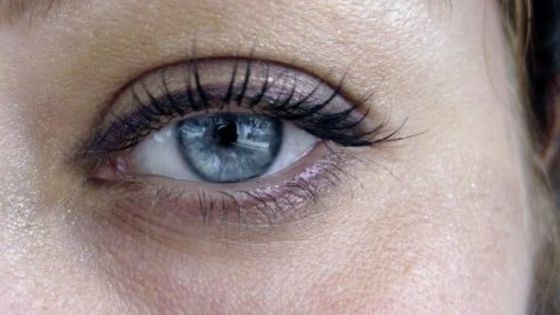Why Does My Eye Feel Bruised? Possible Causes of This Issue!

Have you ever experienced a sharp, throbbing pain in your eye that feels like it's been bruised? If so, you're not alone. Many people experience this type of eye discomfort from time to time and often wonder what is causing it.
It could be something as simple as wearing contact lenses too long, allergies, or something more serious, such as an infection or injury. In either case, understanding the cause of your eye pain can help you find relief and prevent future problems. Read on to learn more about the possible causes of eye bruising and how to treat them.
Why does my eye feel bruised?
Your eye may feel bruised if you have a condition known as ecchymosis (or black eye), which is caused by a collection of blood underneath the skin.
The most common cause of ecchymosis around the eye is trauma or excessive rubbing, which can damage delicate blood vessels. Other causes include allergies, infections, or a reaction to certain medications.
To wrap up
- Ecchymosis, commonly known as a black eye, is caused by a collection of blood underneath the skin.
- Trauma or excessive rubbing are the most common causes of ecchymosis around the eyes.
- Allergies, infections, and reactions to certain medications can also cause this condition.
4 Common Causes of Bruised Eyes

The common causes of bruised eyes are as follows:
- Blunt trauma to the eye
- Exposure to a high-pressure environment
- Contact with irritants or allergens
- Underlying medical conditions
1) Blunt trauma to the eye
Blunt trauma to the eye can occur for several reasons, such as being hit by an object, falling, or getting into a car accident. This type of trauma can cause the blood vessels in the eye to break, resulting in bruising.
2) Exposure to a high-pressure environment
Exposure to a high-pressure environment can also cause the blood vessels in the eye to break, resulting in bruising. This is often seen in people who work in occupations that require them to be exposed to high-pressure levels, such as diving or working in a lab.
3) Contact with irritants or allergens
Contact with irritants or allergens can also cause the blood vessels in the eye to break, resulting in bruising. This is often seen in people with allergies or sensitivities to certain substances.
4) Underlying medical conditions
Underlying medical conditions can also cause the blood vessels in the eye to break, resulting in bruising. This is often seen in people with conditions affecting blood vessels, such as diabetes or high blood pressure.
5 Treatment Options for Bruised Eyes
There are a few different treatment options for bruises around the eye. Depending on the severity of the bruise, some treatments may be more effective than others.
Here is a list of some possible treatments for bruises around the eye:
1) Cold compress
Applying a cold compress to the bruised area can help to reduce swelling and pain. Be sure to wrap the ice in a thin cloth, so it does not come into direct contact with the skin. Leave the ice on for 10-15 minutes at a time.
2) Warm compress
Some people find that a warm compress helps to reduce bruising and pain more effectively than a cold compress. Apply a warm, damp cloth to the bruised area for 10-15 minutes.
3) Arnica cream or gel
Arnica is an herbal remedy traditionally used to treat bruises and other injuries. You can find arnica cream or gel at most health food stores. Apply the arnica cream or gel to the bruised area several times daily until the bruise fades away.
4) Vitamin C
Vitamin C is essential for healing wounds and reducing inflammation. It can also help to reduce bruising. You can take vitamin C supplements or eat foods rich in vitamin C, such as oranges, grapefruits, bell peppers, and broccoli.
5) Massage
Massaging the bruised area can help to increase blood flow and reduce pain and swelling. Use your fingertips to massage the area for 5-10 minutes at a time, several times per day.
When to Seek Medical Attention for a Bruised Eye
If you experience severe pain or vision changes, it is crucial to seek medical attention immediately. You should also see a doctor if the bruise does not start to fade away after a few days of treatment.
A doctor can recommend additional treatments for bruised eyes, such as steroid injections or surgery. They can also help to diagnose any underlying medical conditions that may be causing the bruising.
Prevention Tips to Avoid Getting a Bruised Eye in the Future
- Use protective gear when participating in activities that may cause injury to the eye area. This includes wearing a helmet when riding a bike or motorcycle and eye protection when playing sports.
- Be aware of your surroundings and take care to avoid objects or situations that could pose a threat to the eye area.
- Be cautious when using household cleaners or chemicals, and wear appropriate safety gear to avoid getting any in your eyes.
- If you suffer from allergies, keep your allergies under control to avoid potential eye irritation.
- If you experience any trauma to the eye area, seek medical attention immediately.
Final words
If you have a black eye, it means a blood collection underneath the skin. This can cause your eye to feel bruised.
Bruises around the eye can be painful and unsightly. Different treatment options are available, depending on the severity of the bruise.
If you experience severe pain or vision changes, it is crucial to seek medical attention immediately. You should also see a doctor if the bruise does not start to fade away after a few days of treatment.
Prevention is always the best medicine, so take care to avoid objects or situations that could pose a threat to the eye area.
Be cautious when using household cleaners or chemicals, and wear appropriate safety gear to avoid getting any in your eyes.
If you suffer from allergies, keep your allergies under control to avoid potential eye irritation. If you experience any trauma to the eye area, seek medical attention immediately.
With the proper care, a bruise around your eye can heal quickly, and you'll be back to your regular activities in no time.
DISCLAIMER: buildyourbody.org does not provide medical advice, examination, or diagnosis.
Medically reviewed and approved by Nataniel Josue M D.

